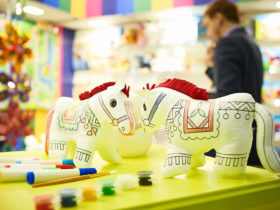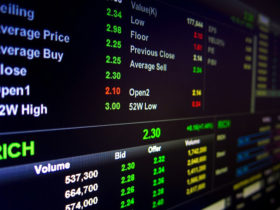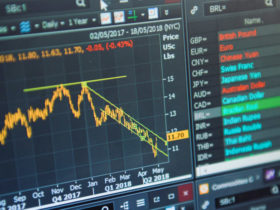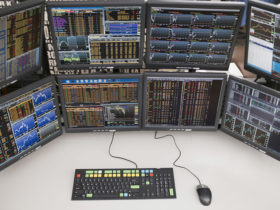Most traders suffer from the mistaken notion that if your learn a good day trading system you will make big money day trading. Of course, nothing could be farther from the truth. One of the few topics that most day traders are reluctant to talk about is market psychology and trading psychology. Yet, when I sit down and trade with a new day trader, I can usually ascertain the emotional issues he will encounter after the first hour.
Some day traders believe that good traders have some sort of intuition into the functioning of the futures market. Here is the rub, when you are trading; your ability to control your emotions while you trade will, in large part, determine your success. Can you simply turn your emotions off and continue to trade on just the facts?
The overwhelming response I receive when this question is posed is "of course I can!" Most day traders do not want to see themselves as weak or deficient, yet when they trade these deficiencies are nearly always present. Your emotions betray you when you trade, and the secret to trading is to have firm control over how you think at the emotional level. It is easier said than done, too. While confidence in trading is important, over confidence is an account-buster. The markets will humble you before you get a handle on what went wrong. Taking a respectful approach to the markets and the risks involved in trading will service you far better. I tell myself several times a day "the market is right, you are wrong."
When I trade, my goal is to trade what I see on the chart. I don’t trade the news, I don’t trade on rumors. I don’t trade the economy. No, I have a specific methodology for trading the chart on the screen and it does not include outside influences. I am not interested in what market pundits have to say about trading on a given day. For many traders, that is a tough pill to swallow.
Here are some of the measures I use to control my exposure to emotional roadblocks.
-
I don’t watch television when I trade. Most of the networks have an agenda in their announcing style that is not objective. Some networks are eternal optimists in the face of contrary facts, and other networks are overly pessimistic in the outlook. I depend on my own analytical skills in reading charts and arriving at my conclusions.
-
I generally play classical music when I trade, as I find this music emotion neutral. Some rock n roll affects me at the emotional level, which is to say the music is psychologically stimulating and I have found I am too aggressive in my trading. As you can see, I have thought some about this issue.
-
I never look at a chat room in my trading, and usually don’t frequent chat rooms at all. Why? Most chat room posters are doomsday types. The sky is not falling, and I am not chicken little, and I do not want my trading influenced by spurious information.
-
I sometimes listen to a radio station when I trade, but it is usually a talk sports station and nothing more than banter. This does not seem to effect my trading unless they talk about the Chicago Cubs, then I am usually irritated and turn the radio off. (yes, I am a long suffering Cubs fan)
So outside influences can, in fact, be an issue; but there are even tougher influences to conquer, and that is the psychological point of view within yourself.
Your own outlook on the world can influence your judgment, regardless of the outside influences to which you expose yourself. Emotional considerations like greed can cause you to trade recklessly and outside the parameters of your trading system. Greed? Yes, there have been several books written in the last 2 years that compare the hormone levels after a very successful trade to pre-trade hormone levels, and found your body’s physiological response was to release large amounts of endorphin, resulting in temporary euphoria. (See "It’s Not What You Think, It’s How You Think," Larry Pesavento, author) Temporary euphoria is not a good state to trade, and may result in terrible losses.
In summary, there is good evidence to suggest that your state of emotions is the determining factor in day trading success. Anecdotal and scientific research has brought this consideration to the forefront in recent years. It is important to realize the detrimental effect your emotions can have upon your trading and take action to minimize outside influences, especially those involving greed, euphoria and overconfidence. And finally, trading psychology is one of the least understood facets of trading and will likely stay that way, because of traders aversion to talking about their feelings in the trading environment.
I know for me it’s simple; anytime I think I know what the market is going to do, I need to remind myself…I don’t know what the market is going to do, and I need to simply trade the chart in front of me without bias. It’s easier said than done.










